An all-star team of indie devs turned the idea of a retro compilation into "an open-world game," and it's a rare gem that understands one secret joy of retro gaming
Feature | UFO 50 is "an open-world game in its own right" - a rare indie '80s tribute that understands retro gaming isn't about the games themselves, but how you discover them
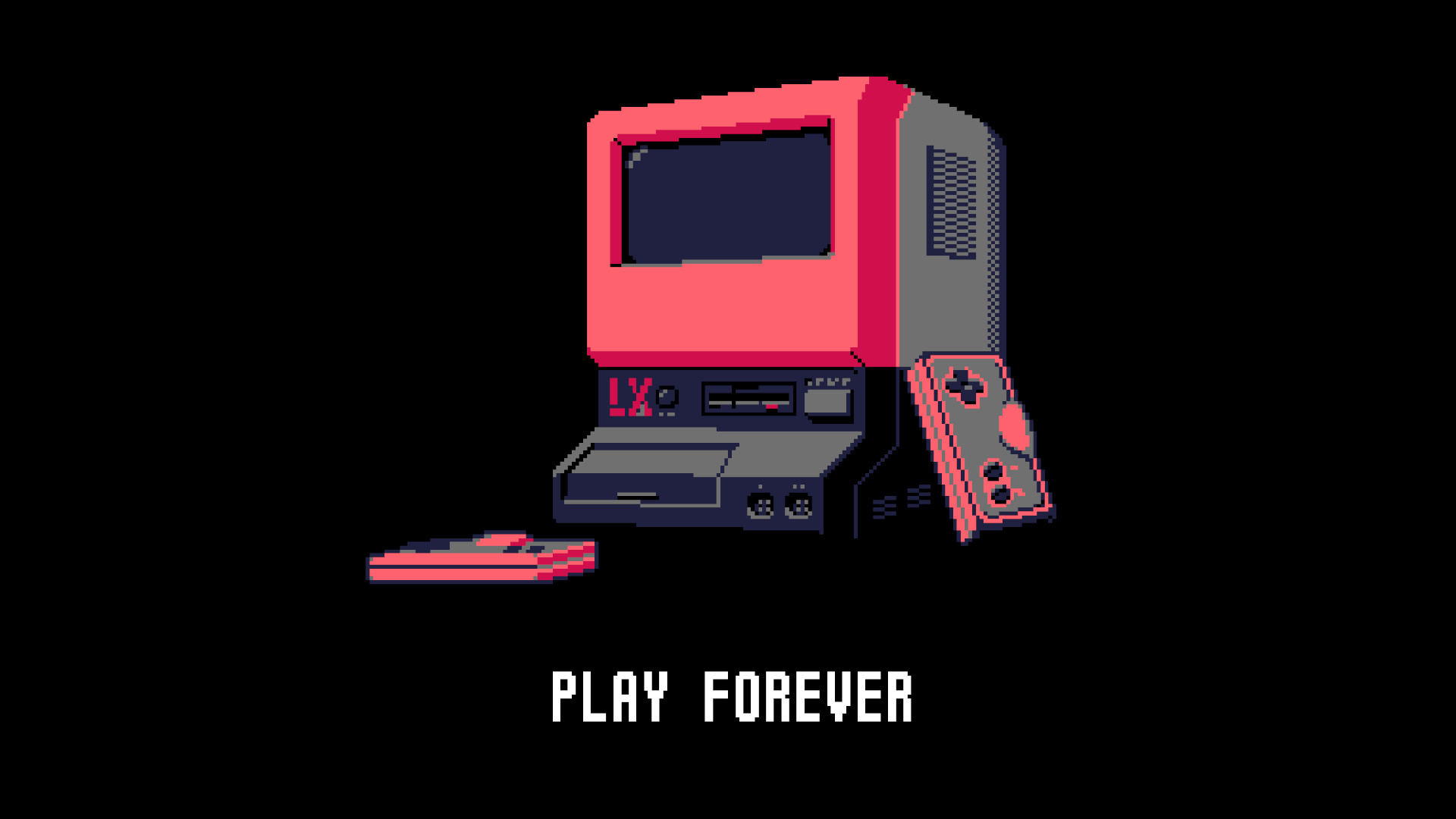
There's a special charm about retro gaming. You might put it down to nostalgia, or the approachable games of a simpler time, but there's an extra ingredient: it's fun to be an archeologist. Finding new retro games to play feels like excavating a bit of history, and dusting off a genuine hidden gem – not just the kind that appears on every single 'hidden gem' list on YouTube – is a genuine joy. UFO 50, a massive collection of games made in 8-bit style by an all-star team of developers including Spelunky's Derek Yu, is the first indie retro tribute I've played that captures that vibe.
"What I like about the 8-bit era is that you never knew exactly what kind of experience you were getting, which was always exciting," Yu tells me in an email interview. "And they weren’t afraid to let you get a little lost as you played… despite the limitations of the hardware, those old games still feel more adventurous than many modern games in that sense. That was one feeling that we wanted to capture in UFO 50."
Yu's best-known work, Spelunky, certainly managed to capture that sort of adventurous feeling, and in so doing helped kick off the roguelite boom that's still dominating the indie scene to this day. But UFO 50 is an even more ambitious project: a 50-game collection chronicling the library of a fictitious 8-bit gaming console. These aren't mini-games, either, as every single title is similar in scope to what you'd get on an NES cartridge.
An open-world history lesson
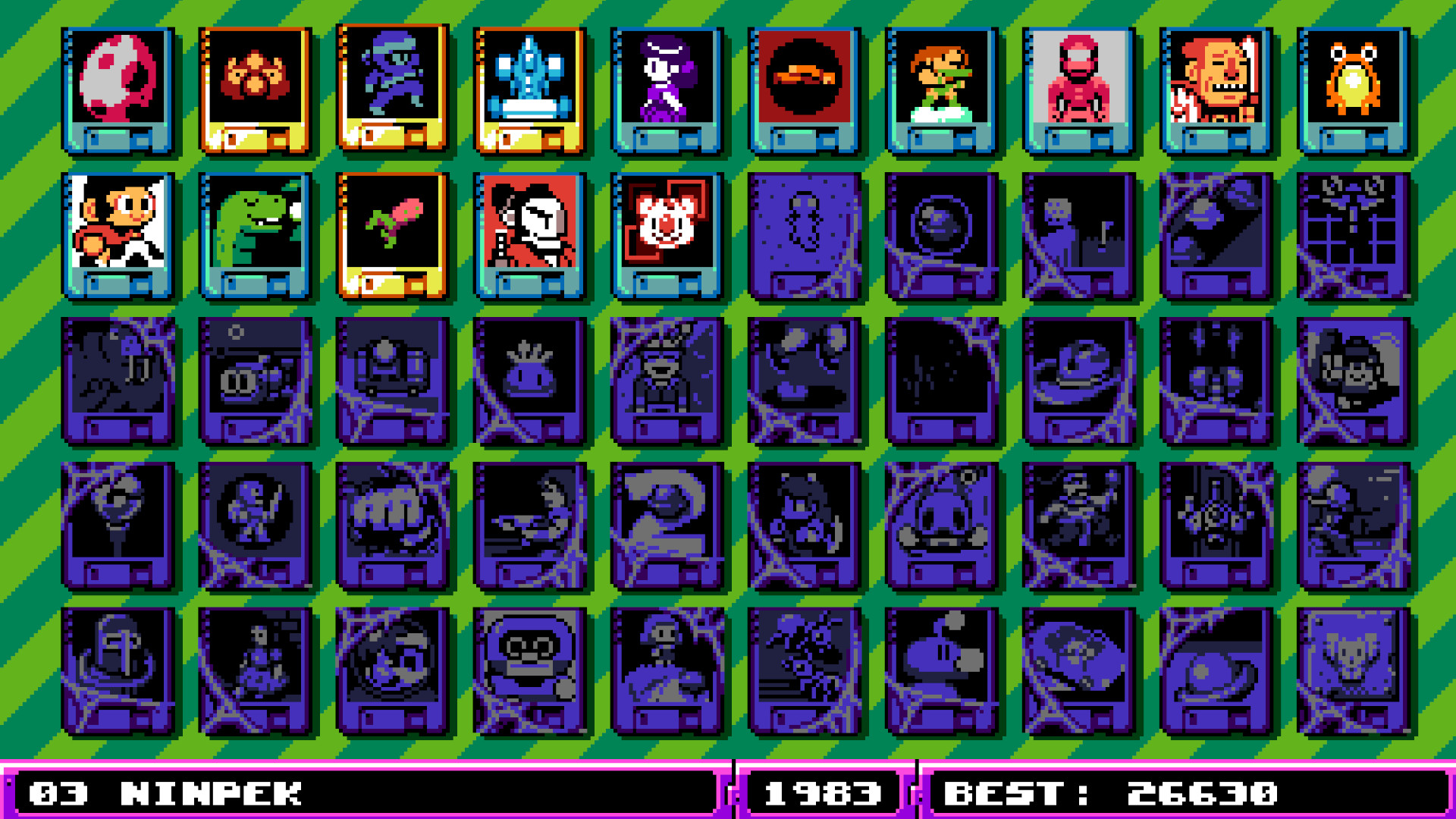
"We like to think of the UFO 50 library as more of an open-world game in its own right," Yu says, noting that - despite numerous suggestions from playtesters - the team never really considered locking the games behind a strict progression system. "How you explore the collection is part of your unique experience and story with UFO 50, and if we locked the games away at the start it would really limit those experiences, in our opinion."
I'm exploring UFO 50 as a sort of chrongaming project, sampling a bit of each game in order of their in-universe release date. It's a method inspired by some of my favorite retro gaming YouTube projects - things like Chrontendo and the Works series - and it's helped me see the odd bits of lore that give the collection so much life. Each game has a tiny blurb about its fictional development history, and over the years you see mascots starting to develop, character sprites getting re-used, and design tropes getting established.
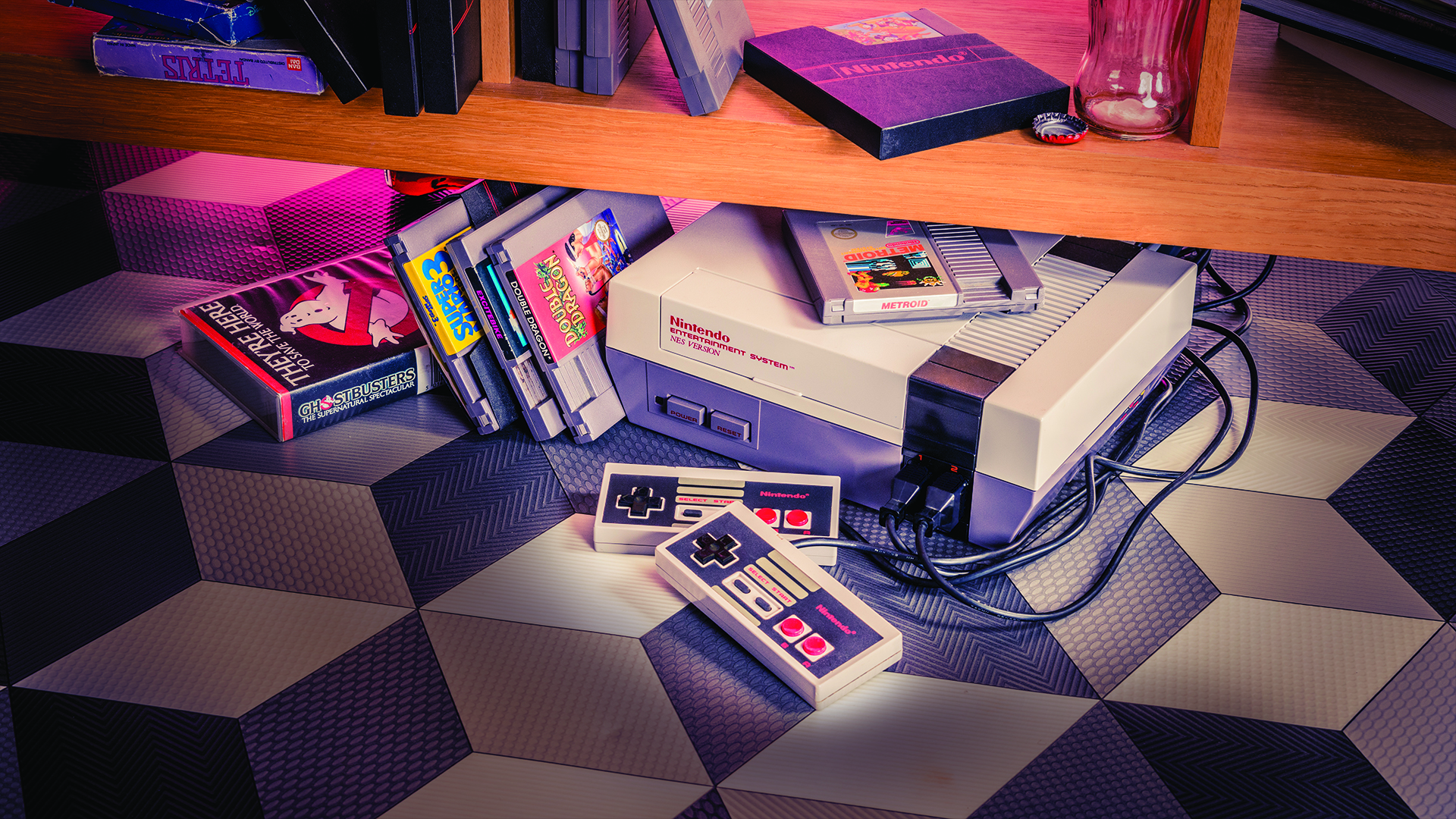
If you want a reminder that the greatest never go out of style, check out our guide to the best NES games.
There's a real sense of history here, and the games increase in both complexity and graphical detail as you go through the years. I'm just 15 games in at this point, but I've already started to see the story of an auteur developer building increasingly obtuse masterpieces, and hardware upgrades adding new depth to the visuals.
But that's just one way to explore UFO 50. The package is set up like a pirate collection - complete with an old-school demoscene-style credits intro - with a big list of games you can sort through however you want. Sort it by genre, or go alphabetical and just play the games that catch your eye. You can mark favorites to come back to, or quickly dig into the multiplayer games if you've got a partner to play with.
Weekly digests, tales from the communities you love, and more
"Not everyone is going to love every game, and figuring out which ones you do love is part of the fun," Yu says. Just like when you load up a big list of ROMs in an emulator, you're probably going to play a big chunk of these games for less than 30 minutes – Yu estimates that actually trying to beat every single game "could easily take a couple hundred hours" – but when one gets its hooks in, they dig in deep.
Digging for gems
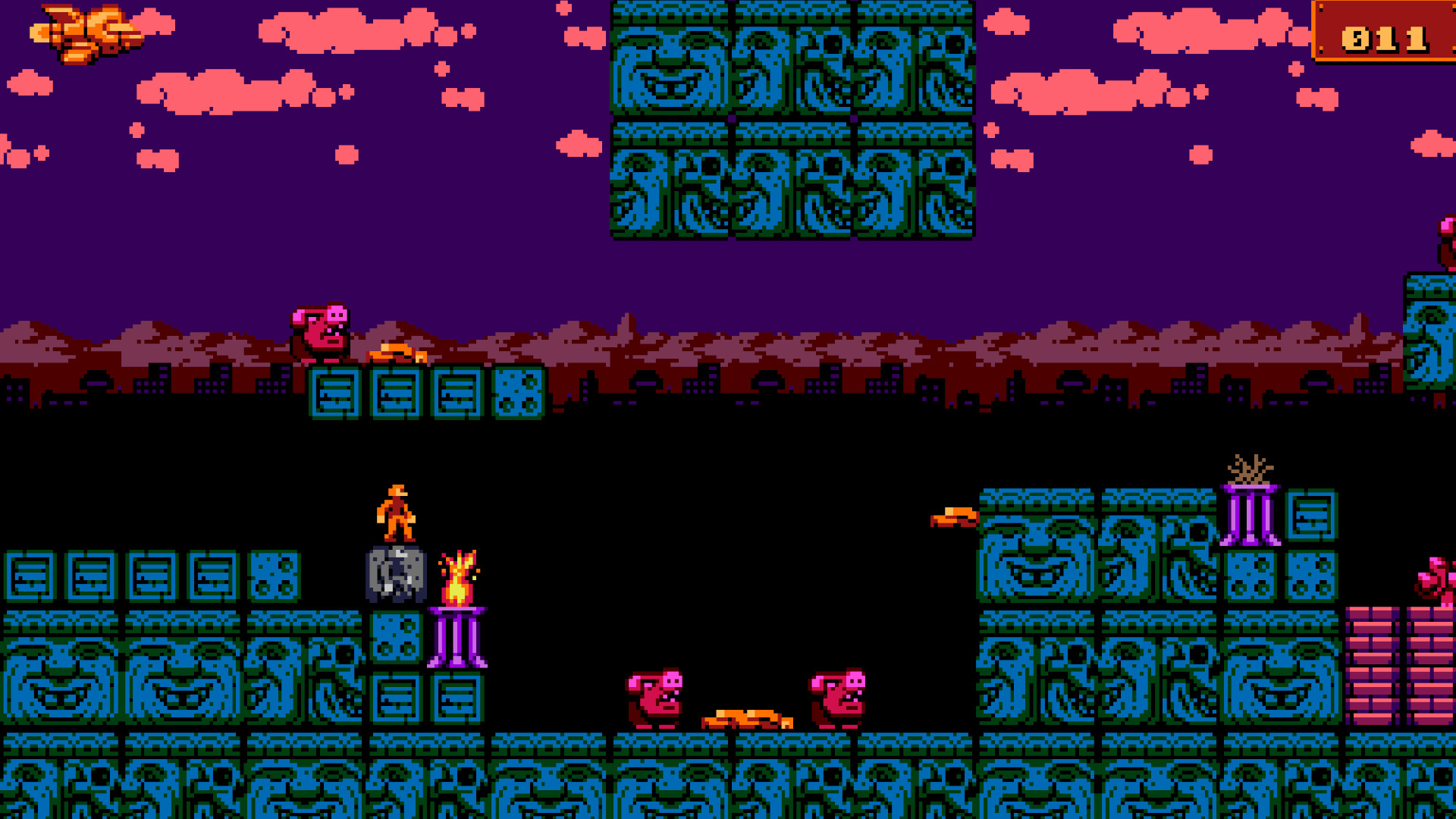
I've played 15 games so far, and I'm confident that every single one of them is going to feel like a proper gem for at least somebody. My own favorite so far is Mortol, a platformer with Lemmings-like trappings. You control a single character that can sacrifice themselves in various rituals, like causing a giant explosion or turning into a stone block. With a limited supply of lives, you've got to create a path to the end of the level, sometimes climbing up a pile of your own bodies to do so. It's extremely satisfying to work out which route results in the fewest deaths, especially because your life count carries forward into new levels.
I've also enjoyed Bug Hunter, a turn-based strategy game where you've got to kill hordes of bugs before you get overwhelmed. Every move and attack is attached to a card, and if you collect enough fuel points on the field you can trade in a card for something new. You might trade in a standard move for an area of effect attack, or a standard attack for a grenade you can lob over raised walls.
Even some of the simpler, arcade-style games have really charmed me. Ninpek is as basic as it gets - an auto-scrolling platformer where you play as a ninja and attempt to survive massive hordes of enemies. Enemies drop power boosts and score bonuses when they die, and running back to collect them while positioning yourself to deal with upcoming monsters is a fun challenge. It certainly helps that the controls are impeccable, too.
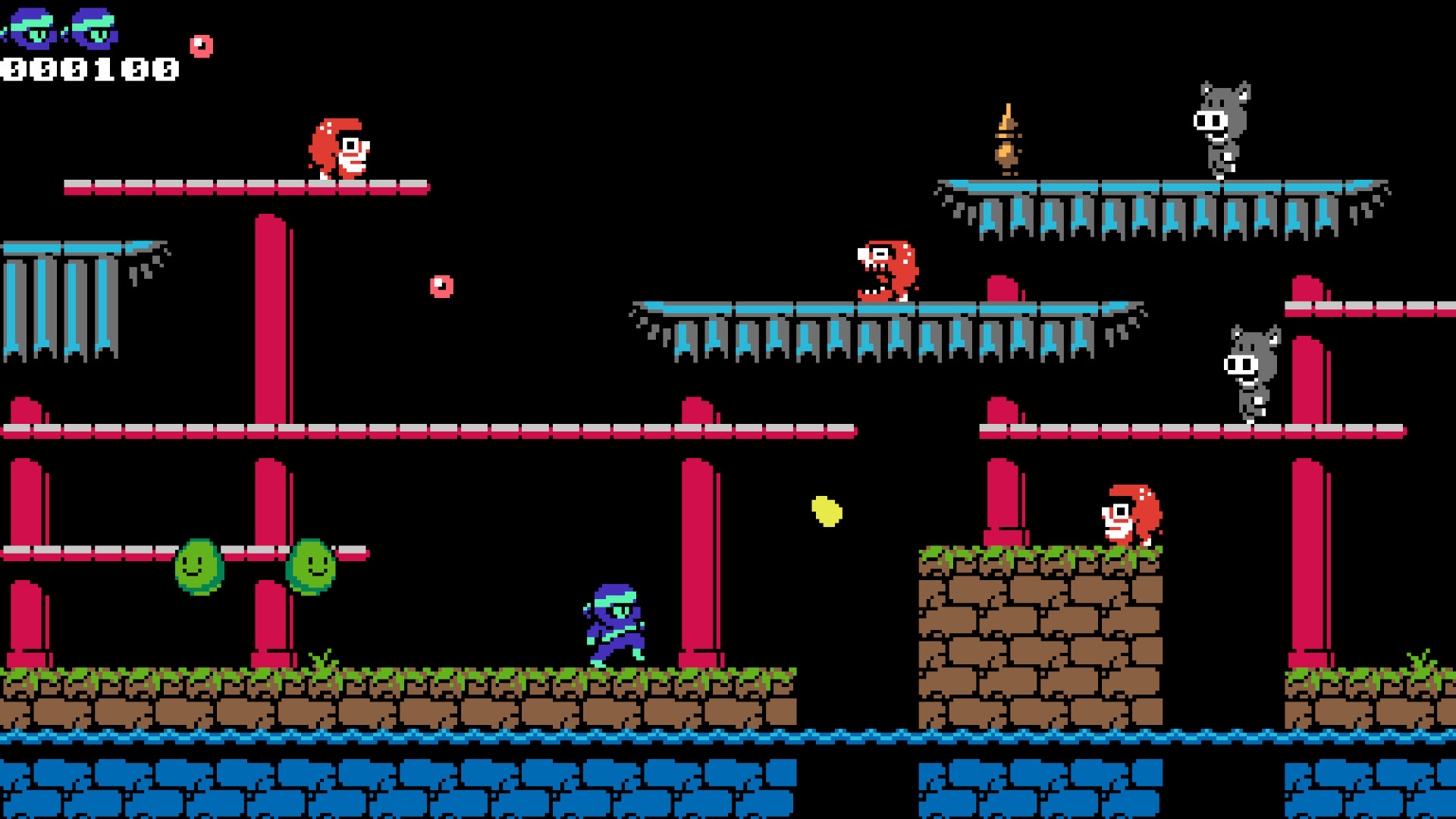
Yu himself says his personal favorite game changes depending on his mood. "Currently, I’m enjoying playing Party House, which is a unique deckbuilder by Jon [Perry] where your 'deck' is your contact list and the goal is to throw the ultimate party within a certain number of turns," he says. "There are different scenarios with different groups of guests and it’s a lot of fun replaying them and trying to find potent (and funny) combinations."
Of course, we're talking about deckbuilders and roguelikes here – not exactly genres you'd find in great abundances on the NES. But that's part of the intent. "Games have evolved in a lot of great ways and there are many wonderful new genres and paradigms now that didn’t exist back then," Yu explains. "And we didn’t want to just recreate old games… our goal is to make completely new games that capture the adventurous spirit we felt back in the day. We tried to combine the best of both eras into this collection."
Naturally, I had to ask Yu if he'd discovered any standout retro obscurities himself during UFO 50's development. "It’s not super obscure, but during development I played through Solstice on the Famicom – it comes on a unique purple cartridge and the box art is beautiful," he says. "I had a great time drawing maps to get through it and I think it holds up well. It’s always had a special mystique to me and I was happy to finally defeat it! I’ve also gotten to play some classic PC-88 games for the first time, now that Japanese publisher D4 Enterprise has ported them to the Nintendo Switch. RELICS is one of those titles and it has a wonderfully bizarre feel to it – like it was made by aliens. I love that! And it was nice to finally try the RPG Xanadu, which is a precursor to Faxanadu, another NES game that I adore."
Eight years in the making
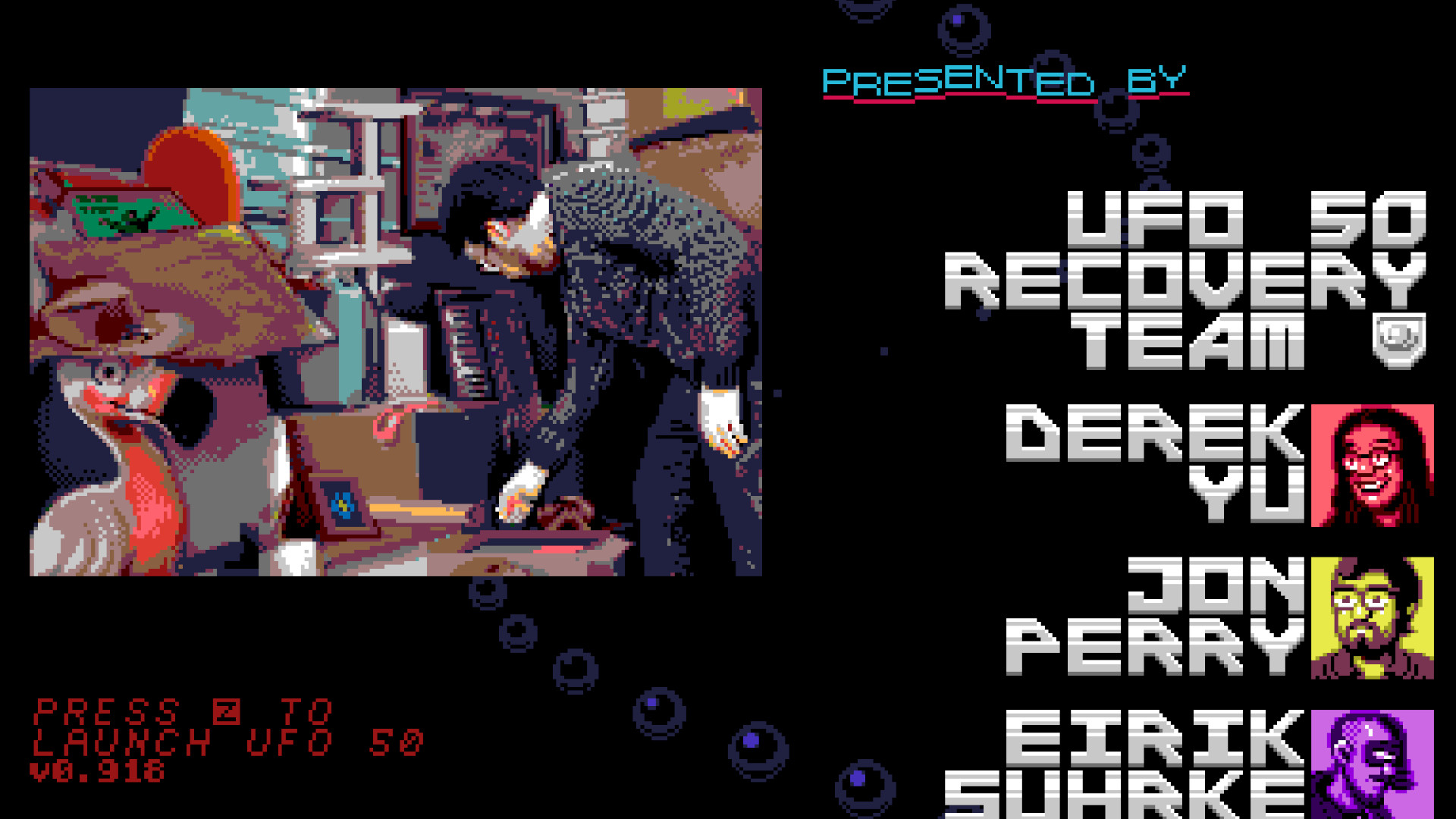
At any given moment in UFO 50, you're simply playing a very good modernized riff on an 8-bit game. But the package strikes me as one of the most ambitious games I've ever played. To create that sense of discovery, the devs have had to build so, so many games, all contextualized across a whole fictional span of video game history. It's like building a full-scale replica of a historical city and covering it in sand, all with the knowledge that each person who visits might only excavate a tiny corner of it. Yet that's the only way discovering these games could feel as magical as it does.
That might go a long way to explaining why – despite being announced in 2017 for a 2018 launch – UFO 50 has taken eight years to develop. "The idea for UFO 50 came from wanting to make a new video game with my old friend Jon Perry," Yu explains. "Growing up we had released several well-received freeware titles under the label Blackeye Software, but Jon had since moved to card game design. So I suggested he make some small games in GameMaker to re-familiarize himself with video game creation."
Yu noted that both he and Perry enjoyed small games, so the idea of making a bunch of them and putting them in a collection seemed like a natural fit. "50 seemed like a number that would really catch people’s attention, so I wanted to aim for that," Yu says. "Of course, quite a few of the games we ended up with were much bigger than I was imagining!" The UFO 50 dev team ultimately included quite a few other indie notables, including Eirik Suhrke, who previously worked with Yu on the Spelunky soundtrack, as well as Downwell creator Ojiro Fumoto. "Aside from Jon, who I’ve known since childhood," Yu explains, "I met everyone else through the indie gamedev community and my work on the TIGSource website."
That small group of indie devs has come together to create something truly special in UFO 50: an entire console's worth of new retro games to explore, and one it's going to take months - if not years - for players to wring every last secret out of. It takes something that big to replicate the real joy of retro gaming - digging through a stack of obscure oddities to find something that digs its way into your heart.
If you need a reminder of what the best part of this industry has to offer, just look at the biggest upcoming indie games on the horizon.

Dustin Bailey joined the GamesRadar team as a Staff Writer in May 2022, and is currently based in Missouri. He's been covering games (with occasional dalliances in the worlds of anime and pro wrestling) since 2015, first as a freelancer, then as a news writer at PCGamesN for nearly five years. His love for games was sparked somewhere between Metal Gear Solid 2 and Knights of the Old Republic, and these days you can usually find him splitting his entertainment time between retro gaming, the latest big action-adventure title, or a long haul in American Truck Simulator.


